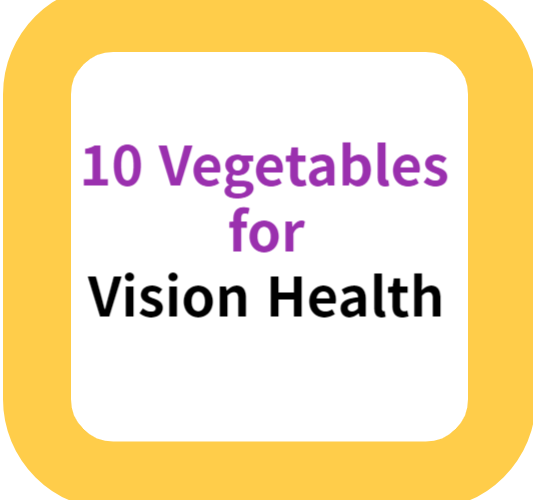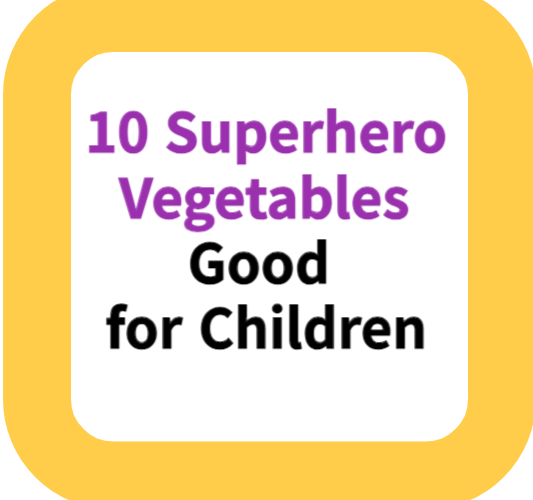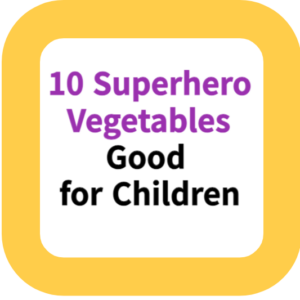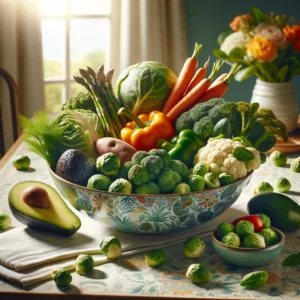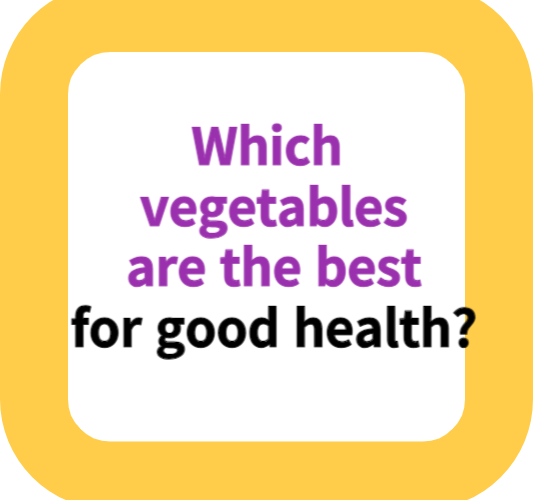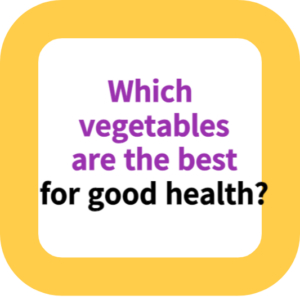10 Vegetables for Vision Health
Welcome to our latest blog post, “A Feast for the Eyes: The Top Ten Vegetables for Vision Health,” where we embark on a nourishing journey through the garden of vision-enhancing vegetables.
In this comprehensive guide, we dive deep into the world of eye health, highlighting the ten powerhouse vegetables that are essential for maintaining and improving your sight.
From the beta-carotene-rich carrots and sweet potatoes to the antioxidant-packed spinach and kale, each vegetable is showcased for its unique ability to protect and enhance vision. Whether you’re looking to safeguard against age-related eye conditions or simply aiming to boost your overall eye health, this post is your go-to resource for incorporating nature’s bounty into your diet.
Join us as we explore how these colorful and nutrient-dense vegetables can be your allies in achieving clearer, healthier vision, ensuring that your eyes remain as vibrant and sharp as the world around you.
10 Vegetables for Vision Health
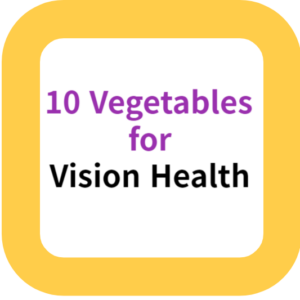
Expanding our focus on the beneficial impact of vegetables on eye health, we delve into a comprehensive guide featuring ten vegetables renowned for their vision-enhancing properties.
This detailed exploration not only underscores the importance of these vegetables in promoting eye health but also aims to encourage a dietary pattern rich in nutrients vital for preserving and enhancing vision. Each vegetable is highlighted for its unique contributions to eye health, supported by scientific insights into how their specific nutrients work to protect and maintain eye function.
Introduction: Nourishing Sight with Nature’s Bounty
Our eyes are intricate organs that require a myriad of nutrients to function optimally and stave off the effects of aging and environmental stressors. In the quest for healthy vision, the role of diet cannot be overstated. A cornucopia of vegetables offers a palette of nutrients critical for eye health, including vitamins A, C, E, beta-carotene, lutein, and zeaxanthin.
This guide is dedicated to unveiling the top ten vegetables that are not only a feast for the eyes in their vibrant colors but also guardians of eye health, each contributing to a vision of wellness and clarity.
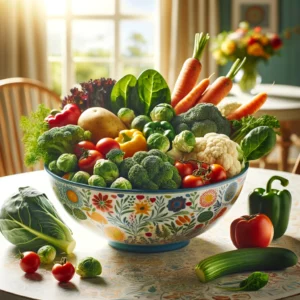
1. Carrots: Vision’s Favorite Snack
Carrots have long been celebrated as the quintessential food for eye health. Their rich beta-carotene content, a precursor to vitamin A, is essential for preventing night blindness and safeguarding against dry eyes. Moreover, the antioxidants in carrots help combat oxidative stress that can harm the eyes.
2. Sweet Potatoes: The Sweet Vision Enhancers
Brimming with beta-carotene, sweet potatoes offer a delicious way to consume vitamin A, crucial for the retina’s health and effective in combating eye infections. Their vibrant orange color is not just appealing to the eye but a marker of their nutritional value for vision.
3. Spinach: The Green Vision Shield
Spinach is a powerhouse of lutein and zeaxanthin, antioxidants that are concentrated in the eye’s macula. These nutrients act as a natural sunblock, protecting the eyes from harmful UV rays and reducing the risk of macular degeneration and cataracts.
4. Kale: The Leafy Green Vision Protector
Kale, much like spinach, is loaded with vision-protective nutrients. It stands out for its high levels of lutein and zeaxanthin, along with vitamin C, all of which are vital for maintaining clear, healthy vision and reducing the risk of eye diseases.
5. Bell Peppers: The Crisp, Colorful Antioxidant Sources
Bell peppers are not only a colorful addition to any dish but also a rich source of vitamin C, an antioxidant that plays a significant role in the health of eye blood vessels and the reduction of cataract risk.
6. Broccoli: The Eye Health Powerhouse
Broccoli’s benefits for the eyes stem from its combination of essential nutrients, including lutein, zeaxanthin, and vitamin C. This trifecta works together to support visual health, offering protection against cellular damage and the effects of aging on the eyes.
7. Brussels Sprouts: Small in Size, Big on Benefits
Though small, Brussels sprouts pack a punch in terms of eye health, offering a good dose of vitamin C and antioxidants. Regular consumption can help shield the eyes from oxidative stress and aid in the prevention of cataracts.
8. Cauliflower: The Understated Vision Supporter
Cauliflower might be understated in color, but it’s packed with vision-supporting nutrients. It’s another excellent source of vitamin C, which helps fight oxidative stress and supports the overall health of the eye.
9. Tomatoes: The Lycopene-Rich Vision Enhancers
Tomatoes are rich in lycopene, an antioxidant with powerful vision protection capabilities. Lycopene helps shield the eyes from light-induced damage and is thought to play a role in preventing macular degeneration.
10. Peppers: Spicy and Sweet Vision Aids
Both spicy and sweet peppers are valuable for eye health, rich in vitamins A and C. These vitamins are crucial for maintaining the health of the cornea and conjunctiva, and they play a role in reducing the risk of cataract formation.
Conclusion: A Visionary Diet for Healthy Eyes
Incorporating these ten vegetables into your daily diet represents a proactive approach to maintaining and enhancing eye health. Each vegetable offers unique nutrients that contribute to a comprehensive eye health strategy, supporting everything from the prevention of age-related vision deterioration to the protection against environmental damages.
By embracing a diet rich in these vision-supporting vegetables, you’re not just nurturing your body; you’re ensuring that your windows to the world remain clear and vibrant for years to come. Make these vegetables staples in your meals, and witness the benefits of a diet that looks out for your eyes.
